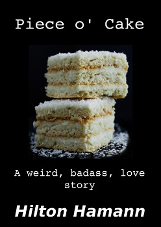Here is an excerpt from my short story, "An Unlikely Teacher." It's a story that will strike a chord with many and is available on Amazon (
US) (
UK) (
Australia)
An Unlikely Teacher
Lessons in Freedom
by
Hilton Hamann
PUBLISHED BY
HILTON HAMANN
An Unlikely Teacher
©Hilton Hamann (2014)
I first met Jonathon at a charity function held in a fancy, five
star hotel in Johannesburg's northern suburbs. It was part of the
world I effortlessly inhabited at the time. As the head-writer at the
country's most exclusive and expensive, corporate public relations
firm, I moved in high circles.
Jonathon wore a tux but looked uncomfortable and out of place. A
doctor with
Doctors Without Borders, he was much more at home in his
rural clinic but the organisation relied on corporate donations and
there were times he had no option but to reluctantly schmooze at
fund-raising events.
He looked interesting so I made a point of buying him a drink and
we got chatting. Jonathon operated a small clinic in deep rural Kwa
Zulu - Natal that was the only source of medical assistance to a few
thousand people who lived in villages in the area.
He said he loved his work, but to be honest, I quickly grew bored
with the conversation. He was an educated man, a doctor, but knew
nothing of the world. There was no Internet where he lived, he knew
little of current affairs and when it came to financial topics and
investments, he was clueless.
When I finished my glass of 12 year-old scotch, I graciously
excused myself and headed off to chat with the CEO of a large bank. I
never thought I'd see Jonathon again. Our world's were separate and
different. Mine sophisticated and civilised, his backwards and
primitive.
And our paths most likely would not have crossed again, had I not
been retrenched six months later. In a single moment, on a Tuesday
morning, I discovered my carefully constructed, moderately well-to-do
existence was, in fact a house of cards. Like so many of my age and
generation, I believed the good times, the easily-available credit
and an abundance of work would last forever. When it crashed, it came
down hard and I was left gasping, neck-deep, in a sea of debt.
In short order I lost it all...the wife...the dog...the
house...the car and pretty much everything else in between. My
retrenchment package was enough to settle my debts with almost
nothing left over.
I thought I'd easily find another job - after all I was at the top
of my game and over the years I'd built up an impressive network of
contacts - I was wrong. No-one wanted to hire a fifty-something man,
and after six months of making calls and sending out CVs, I gave up
looking for work.
